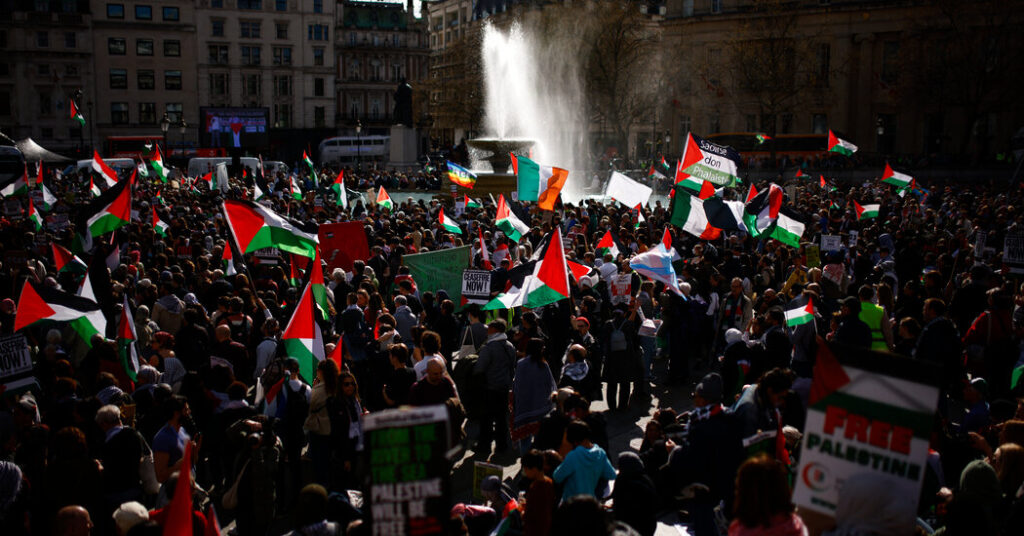Pressure is mounting on the British government to end arms sales to Israel after seven aid workers, including three British nationals, were killed in an attack on a convoy in the Gaza Strip. More than 600 lawyers and former judges have written to the government, arguing that the sale violates international law.
Lawyers cited the UN Supreme Court's finding that there was a risk of Palestinian starvation, a possible Israeli attack on the city of Rafah, and a “plausible risk” of genocide in the Gaza Strip. He called on Prime Minister Sunak to “cease the activities of the Palestinian Authority.” Providing weapons and weapons systems to Israel.
The 17-page letter, sent on Wednesday, concluded that “further serious action is needed to avoid the UK becoming complicit in serious breaches of international law, including potentially breaching the Genocide Convention.” ing.
Among the signatories is former UK Supreme Court Chief Justice Brenda Hale. Jonathan Sumption and Nicholas Wilson, former court judges; And dozens of the country's most prominent lawyers participated.
Mr. Sunak has stepped up his criticism of Israel's war effort in recent weeks, but has not taken any punitive measures. On Tuesday, he told Israeli Prime Minister Benjamin Netanyahu that the attack on the World Central Kitchen convoy that killed three Britons was “astounding.”
But Mr Sunak has given no indication that he is considering halting arms sales. He told London tabloid The Sun on Wednesday: “We have always adhered to a very careful export licensing regime. There is a set of rules, regulations and procedures that we always follow.”
Britain's arms trade with Israel does not come close to that of the United States. Defense Secretary Grant Shapps told parliament that Britain's total exports to Israel in 2022 were 42 million pounds ($53 million), a figure “relatively small”. It sells parts for military aircraft, assault rifles, explosives, etc. Under a 10-year agreement reached in 2016, the United States provides $3.8 billion in annual military aid to Israel.
But the attack on the aid convoy sparked outrage across the UK and dominated the front pages of newspapers and television news. The family of John Chapman, one of the three British victims, said in a statement: “He died trying to help others and was subjected to inhumane treatment.”
Britain summoned the Israeli ambassador to lodge a formal objection, and Prime Minister Benjamin Netanyahu characterized the attack as a tragic accident in the fog of war and called for an investigation into the attack.
Such explanations are unlikely to quell the growing chorus of condemnation. Several MPs from Mr Sunak's Conservative party have also called for an end to arms sales, as has Peter Ricketts, who served as foreign secretary and national security adviser to David Cameron when he was prime minister.
Mr Ricketts told the BBC on Wednesday: “Sometimes in conflicts there are moments of global outrage and a sense that this cannot continue.” “We hope this horrific incident will serve its purpose.”
On Thursday, Prime Minister Cameron, who was in Brussels for the second day of a NATO foreign ministers' meeting, said Israel would not only allow more humanitarian aid to Gaza, but also ensure that convoys could transport humanitarian aid across the enclave. said it was necessary to do so. Unless something more fatal happens.
“The UK is watching very closely to ensure that happens,” Prime Minister David Cameron told reporters on Wednesday.
Labor, which holds a double-digit lead over the Conservatives in opinion polls, has argued that Britain should halt arms sales if Israel is found to have broken international law. “I have to say we have very serious concerns,” the party's shadow foreign secretary, David Lammy, told reporters.


